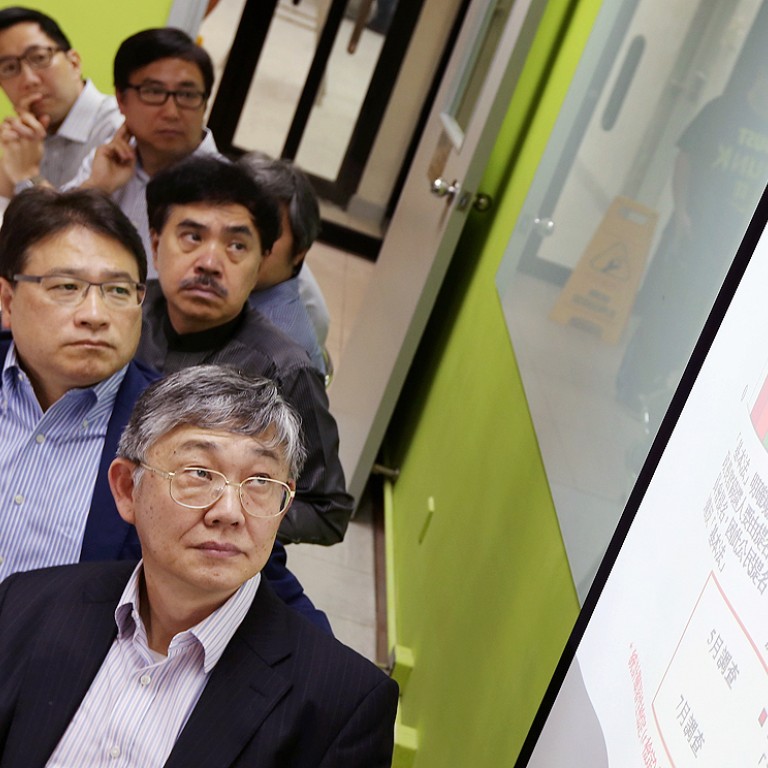
More than half of Hongkongers would accept 2017 one-man, one-vote with unsatisfactory nomination, says survey
Survey finds more than half of Hongkongers would accept universal suffrage even if the nomination process was unsatisfactory
More than half of Hongkongers would accept a one-man, one-vote election for chief executive in 2017 even if they were not happy with the method for choosing candidates, according to a survey.

The survey, commissioned by a 15-member group of businessmen and professionals, was released on the same day that Zhang Xiaoming , director of Beijing's liaison office in Hong Kong, reasserted the central government's "rights" over the city to prevent disturbances.
It also coincided with the launch of a new campaign by the Hong Kong government to call on people to set aside disputes and secure the 2017 vote first.
"While the pan-democrats are getting tougher and are ready to reject an unsatisfactory reform package, there's a sign those in the middle ground are starting to share pro-establishment views," said Shih Wing-ching, a member of the Concern Group for Public Opinion on Constitutional Reform and founder of property agency Centaline.
Shih referred to one question in the phone survey, conducted by Lingnan University researchers, on whether people wanted a "one-person, one-vote" election in 2017 if the nomination procedure was not satisfactory.
Of the 1,017 who responded, 55 per cent said yes and 36.5 per cent said no. The rest disagreed with either option or were unsure. The results were similar to a survey the researchers conducted in May, asking mostly the same questions.
But the breakdown revealed polarising views. The survey found 61.3 per cent of unaligned "middle-ground" respondents said yes to that question, up from 50.6 per cent in May.
Among those who identified with the pan-democratic camp, 48.2 per cent said yes, down from 56.5 per cent. Fifty-eight per cent of pro-establishment respondents would accept an imperfect reform package, up from 53.2 per cent.
The group called on all sides to stay at the negotiating table to bridge the gap.
The survey was released two weeks ahead of a decision by the national legislature on the direction of Hong Kong's reform. It was conducted in late July.
Democratic Party lawmaker Albert Ho Chun-yan said: "When you talk about whether to 'pocket' an unsatisfactory reform package first, it is a matter of principle and not a mere matter decided by a majority view."
Civic Party chairwoman Audrey Eu Yuet-mee said whether to accept the reform package "would ultimately depend on what is offered on the table", which is unclear at this stage.
The survey also asked whether negotiation or confrontation should be used to strive for universal suffrage. Sixty-seven per cent chose negotiation and 19 per cent opted for the choice of confrontation.

